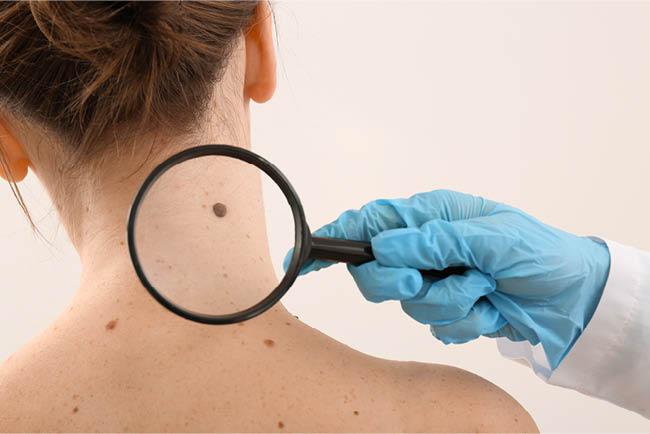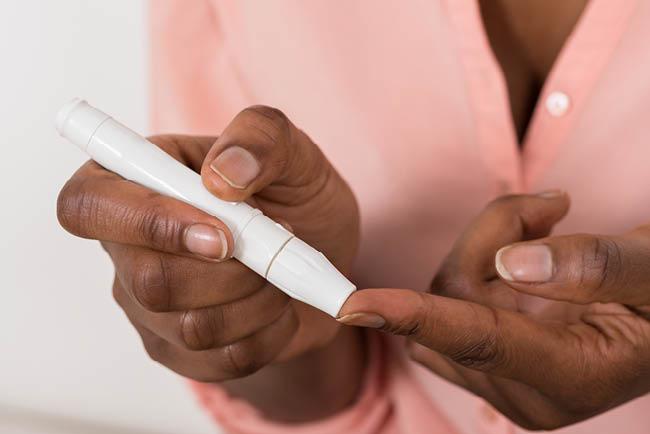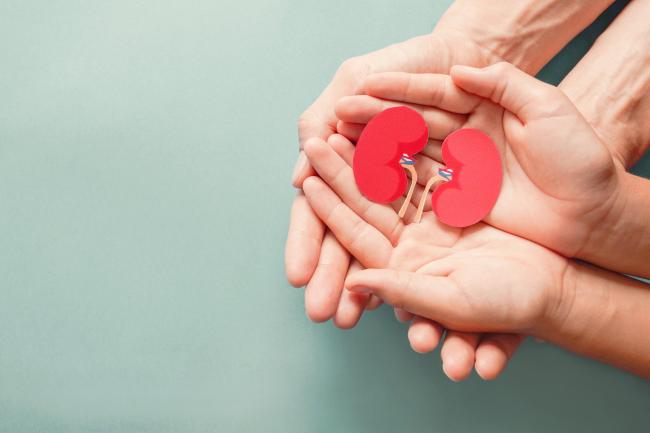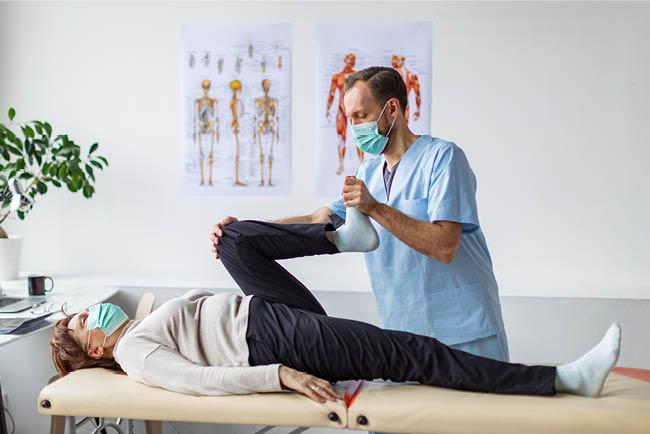Study Categories
-
Children Helping Children With Immune Diseases
Official Title
Creation of a pediatric healthy control repository for clinical diagnostic immunology test development and validationPurpose
This study uses healthy children from newborns to 18 years old to help understand immune disorders. This study will compare healthy children and teens to children and teens with disorders of the immune system.
Volunteers will visit Nationwide Children's Hospital (NCH) for a blood draw either one time or not more than once every three months.
Could this study be right for you?
If your child is:
- Newborn to 18 years of age
- Healthy with no significant medical diagnoses
- Has no chronic medical conditions that can affect results of immunological studies
- Is not on any medication known to alter immune status or function
- Has not undergone recent surgery, chemotherapy, radiation or transplantation
- Has had no infections within the last 2 months -
Cognition and Brain Circuitry
Official Title
Cognition and Brain CircuitryPurpose
The purpose of the study is to look at how our brain networks interact for different mental functions and how individual differences in brain structure and function determines individual differences in behavior. During this study, we use magnetic resonance imaging methods: functional magnetic resonance imaging (fMRI) and diffusion weighted imaging (DWI). Functional MRI (fMRI) and DWI are typical imaging methods that use a strong magnetic field and radio waves to make pictures of your body. The total length of the study will be between 3 and 4 hours, including up to 2 hours outside the MRI scanner and 2 hours in the scanner.
Could this study be right for you?
- Healthy adults between 18-40 years of age - Have normal or corrected-to-normal vision
Age Range
18 and up -
Death of a Child During the Pandemic: Experiences of Parents
Official Title
Death of a Child During the Pandemic: Experiences of ParentsPurpose
The purpose of this exploratory study with parents who have experienced the death of a minor child during the COVID-19 pandemic is to determine a) if it is worthwhile to recruit parents using an online platform; b) if it is suitable to be able to obtain the data of interest using an online platform; c) if parents find this type of recruitment and data collection strategy acceptable; and d) what the experiences of parents whose child died during the COVID-19 pandemic have been like.
Could this study be right for you?
The following are the eligibility criteria: Inclusion a. Parents whose child died between March 15, 2020 and present b. 30 days post child death c. Child age at death: Birth to 19 years d. Speaks English e. Any care setting (home, hospital, hospice care facility, long-term care) f. Parents who are 18 years or older
Age Range
18 and up -
Decision Making Among Couples Concerning "Permanent/Irreversible" Birth Control
Official Title
Couple Dynamics Surrounding Contraceptive SterilizationPurpose
This study aims to understand people’s experiences with contraceptive sterilization (such as tubal ligations or vasectomies).
The purpose of this study is to better understand how adults decide to use sterilization as
their main form of birth control. By examining sterilization decisions, this study will
provide a better understanding of how individuals describe and explain their decision
making process.In this study we are interested in learning how people discuss these decisions with their partner, as
well as everyday interactions with their partner, other forms of birth control, and attitudes
about gender more generally.Could this study be right for you?
-Ages 21-55
-Have used tubal ligation or vasectomy as primary contraception, WITHIN the last five (5) yearsParticipants will be asked to answer a series of questions regarding their experience with
sterilization. Interviews will be digitally recorded by audiotape and will remain
confidential. The duration of the interview will last approximately one hour to one hour
and thirty minutes.Age Range
21 and up -
Decision-Making Abilities and Testamentary Capacity Among Older Adults
Official Title
Decision-Making Abilities and Testamentary Capacity Among Older AdultsPurpose
The overall goal of this research is to examine factors such as social resources, personality characteristics, and neurocognitive functioning in relation to decision-making abilities testamentary capacity among healthy older adults.
Another purpose of this research study is to evaluate the impact of Problem-Solving Treatment-Primary Care (PST-PC), a cognitive-behavioral therapeutic approach, on decision making among healthy older adults. PST-PC involves a seven-step model, in which participants identify problems to be solved, discuss and evaluate different resolutions to reach desired goals; create action plans to accomplish determined goals; and evaluate their effectiveness in resolving designated problems.
We will compare the effectiveness of PST-PC on individuals who will not receive any intervention.
A no treatment control group of older adult participants will also be recruited to compare the effectiveness of PST-PC to individuals who do not receive the intervention. This no treatment control group will composed of participants who do not receive the PST-PC sessions.
Could this study be right for you?
Inclusion Criteria:
-adults aged 65 and older
- Must be independently-living and community-dwelling
- Participants must be willing to undergo a health interview to rule out outstanding medical and psychiatric conditions
- Adequate sensory abilitiesExclusion Criteria:
- A history of psychiatric illness necessitating inpatient treatment
- Participants with self-reported depression and/or anxiety exceeding mild levels of clinical severityAge Range
65 and up -
Diet Quality in Children 3-5 Years Old from Low Income Households
Official Title
An Examination of the Diet Quality of Children Low Income Children from 3-5 Years of AgePurpose
To determine dietary patterns and calculate dietary quality of young children enrolled in child care centers, WIC, and other places that serve parents and young children; and to identify the most significant cultural, social, and economic factors influencing the dietary and eating patterns of these children.
The total amount of time you will be asked to volunteer for this study is 2 hours and 10 minutes.
Could this study be right for you?
- Parents and/or caregivers must be at least 18 years of age
- Each household must qualify as low income status
- Each parent/caregiver must be fluent in English
- Each child must not have a medical condition requiring diet modifications
- Each child must be 3-5 years oldAge Range
3 and up -
Diet Quality in Children Birth to 6 Months Old from Low Income Households
Official Title
An Examination of the Diet Quality of Low-Income Children from Birth to 6 Months Old.Purpose
The purpose of the research is to determine the dietary patterns and calculate the dietary quality of infants and enrolled in childcare centers, WIC, and other places that serve parents of young children; and to identify the most significant cultural, social, and economic factors influencing the dietary and feeding patterns of these children.
The total amount of time you will be asked to volunteer for this study is 2 hours and 10 minutes.
Could this study be right for you?
- Parents or caregivers must be at least 18 years of age
- Each parent/caregiver must be fluent in English
- Each household must qualify as low income status based on the number of people in the household
- Children must be within 0-6 months of age
- Children must not have any medical condition requiring a modified diet -
Diet Quality of Low-Income Children 6-24 months old
Official Title
An Examination of the Diet Quality of Low-Income Children 6-24 months oldPurpose
The purpose of the research is to determine the dietary patterns and calculate the dietary quality of children 6 to 24 months of age and enrolled in childcare centers, WIC, and other places that serve parents of young children; and to identify the most important cultural, social, and economic factors influencing the dietary and feeding patterns of these children. The total amount of time you will be asked to volunteer for this study is 2 hours and 10 minutes.
Could this study be right for you?
- Parent or caregiver of a child 6 to 24 months old - Receiving WIC, SNAP, or similar benefits - Live in Franklin County, Ohio
Age Range
18 and up -
Economic Insecurity of Adult Caregivers
Official Title
Economic Insecurity of Adult CaregiversPurpose
This study examines the financial hardship experienced by adult children who provide care to parents with Alzheimer's and dementia. The research questions for this study explore how adult children navigate the economic and financial hardship associated with being a caregiver: financial sacrifices or economic hardships they may face due to caregiving responsibilities and how they think this will affect them in the future.
Could this study be right for you?
Eligible participants include adult children in Central Ohio (from urban and rural areas) who are caregivers to a parent or parent-in-law with Alzheimer's or dementia.
Age Range
18 and up -
Evaluating a Cell-Based Therapy in New Living Donor Kidney Transplant Recipients and Donors
Official Title
FREEDOM 1, A randomized, controlled, multi-center, safety and efficacy study of FCR001 cell-based therapy relative to a tacrolimus and mycophenolate-based regimen in de novo living donor renal transplant recipients, and safety in FCR001 donorsPurpose
The purpose of this study is to learn more about whether FCR001, an investigational cell therapy, can prevent the rejection of living donor kidney transplants without the need for lifelong anti-rejection drugs.
Could this study be right for you?
• Recipient age ≥ 18 years
• Donor age ≥ 18 and ≤ 60 years
• Recipient of a first kidney transplant from a living donor
• Not diagnosed with or treated for any type of cancer (donor or recipient)Age Range
18 and up -
Evaluating a Mobile Health App for Cardio-Oncology Patients
Official Title
Mobile Health App as a Cardiotoxicity Symptom Logging Tool: Feasibility Pilot StudyPurpose
To evaluate the cardio-oncology patient population’s experience with using smart-phone technology as a part of self-management with their care through features such as symptom logging and education. Eligible patients will be asked to participate in a 30-minute virtual interview and/or a 60-minute virtual design or usability session to discuss their thoughts on a mobile app for cardio-oncology patients.
Could this study be right for you?
- English-speaking - Prior cancer diagnosis - Currently undergoing a cancer regimen that includes a targeted, biologic, radiation, and/or immune-based therapy (ex. TKIs and/or ICIs). - No pregnant females - No prisoners
Age Range
18 and up -
Evaluating if an Antiretroviral Therapy Medication Change Can Effect Weight
Official Title
“Doravirine for Persons with Excessive Weight Gain on Integrase Inhibitors and Tenofovir Alafenamide (The Do IT Study)”Purpose
The purpose of this study is to see whether people living with HIV who gained a significant amount of weight after starting an antiretroviral therapy (ART) could gain less weight, or might lose weight, after an ART regimen switch. The study will also look at whether a switch in antiretroviral therapy leads to differences in how the body stores and uses energy, heart and blood vessel health, and bone health. The study will last for 48 weeks (about 1 year). Following the first visit, you will need to come back to the clinic after about 4, 12, 24, 36, and 48 weeks. Each visit may take up to 3 hours.
Could this study be right for you?
• Living with HIV-1 • Be 18 years or older • Currently on an Integrase Inhibitor (INSTI) containing regimen (BIC, DTG or RAL), with > 48 weeks INSTI+TAF/FTC (or TAF/3TC) dosing prior to study entry • Have experienced more than 10% weight gain in the 1-3 years after starting these medications • Have a body mass index (BMI) >27.5 kg/m2 • Have study related tests done • Agree to use contraception/birth control methods if capable of becoming pregnant
Age Range
18 and up

























